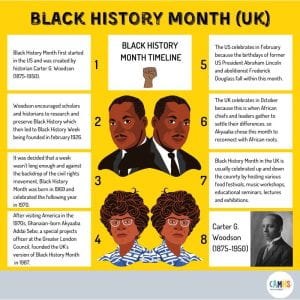The Race Equity Lead, Bilal Malik answered a Q&A to mark International Day for the Elimination of Racial Discrimination on 21 March- find out what Bilal had to say below:
What does International Day for the Elimination of Racial Discrimination mean to you?
First, it is a means to remember and honour the past, the reason why this day came about. On the 21st of March 1960, South African police opened fire and killed 69 people at a peaceful anti-apartheid rally in Sharpeville, South Africa. The UN General Assembly passed a resolution proclaiming 21 March as the International Day for the Elimination of Racial Discrimination.
Second, it provides a reminder that as an individual, I should actively play a role in combating racial discrimination and try and promote equality, inclusivity, diversity, and unity. We must remember this issue is particularly pertinent at the moment, as the government have created a culture of hatred towards refugees and framed a narrative where somehow migrant and refugees are blamed for the actual failing of the government and their policies. This day should serve as a reminder for everyone, communities, and organisations to unite to eradicate racism at all levels and promote a culture of equality and inclusivity.
What are your ambitions as Race Equity Lead within the Faculty and what attracted you to take on this role?
Through this role, I wish to support students and staff from ethnic minorities for them to achieve success in their studies and careers whilst at UCL. I hope I can provide help in closing the BAME attainment gap for students and assist staff in their promotion process. We have a shortage of BAME academic staff in higher-level positions, so somehow we need to find ways in to ensure an adequate number of BAME staff are recruited, retained, and promoted to top-level grades.
I really wanted to take on this role as I believe passionately in removing racial inequalities and promoting UCL as an inclusive diverse place of learning. However, to promote equality and inclusion, we need the active participation of everyone, which is why I am keen on encouraging the concept of “allyship”. Allyship can foster inclusivity because it creates an environment where everyone is included and it can help to encourage the building of relationships and foster a culture of inclusivity.
Can you tell us about any race equity initiatives that you are involved in currently or any that are in the pipeline?
The role is still new to me and I am still settling in, but we do have some initiatives in the pipeline. It is imperative that we promote, foster and embed the culture of race equity and anti-racism in the practice and ethos of our in our day-to-day living, practices, and policies. I would like to help increase the recruitment of BAME staff and ensure adequate numbers are promoted to high-level positions. Also, the creation of allyship and increased communication between institutes is something I would like to aim for. Finally, I also believe UCL needs to further develop outreach programs and initiatives in schools to encourage BAME students to enter into higher education and I hope this can be actively pursued. Hopefully, there will be some new initiatives that I can support.
What can we do as a university to create a more equitable academic environment?
Several actions and initiatives can be undertaken. There should be an acknowledgment of the problem, so the university should not make tokenistic gestures but proactively promote and embed race equity and anti-racism in the culture of the university. There should be more “safe” and inclusive environments where BAME staff and students can have a voice and be actively listened to. There should be more visibility of BAME staff in higher positions as this encourages and inspires staff and students to remain and progress through the career pipeline at UCL. Finally, this may be contentious, there needs to be a conversation about the use of the word “BAME”. The acronym is useful for descriptive purposes and its intention is way of gathering statistics and data. It, however, serves as a descriptor for everyone that is non-white and therefore assumes that this is the homogenous group. It however overlooks the differences in ethnicity and fails to consider the nuances and complexities present between different communities. British black African and black Caribbean communities have unique and distinctive cultures, while British Pakistani communities are vastly different from Indian, Sri Lankan, Bangladeshi, and other South Asian groups.
Are there particular lessons that universities could learn from other organizations or sectors?
Yes, of course, we should be open to new initiatives and practices linked with promoting race equity and equality. Several toolkits and frameworks dealing with race equity are available from not only race foundations and charities but also the corporate sector. These can help with drawing up a race equality strategy and action plan, as well as anti-racist initiatives and strategies for inclusivity in universities.
Interestingly, The University of Kent undertook novel a approach to antiracism. With the help of Nous, an external consultancy, a strategic approach to advancing racial equity and addressing racial inequalities was identified. Nous provided a team of experts and worked with the university community to prepare a comprehensive strategy.
To finish on a positive note, there is an interesting statistic, so according to the Equity Effect Report by the Henley Business School, companies that took positive action to achieve equity recorded an average revenue higher than those that did not., Businesses that actively confronted inequity and racism with practical measures, said researchers, could expect to see an improvement in their employee’s job satisfaction, loyalty, creativity and, ultimately, value, achieving revenue 58% higher than those which did not. This really shows the importance of having a sound race equity and anti-racism policy that encourages diversity and inclusivity at all levels.
 This blog was authored by the Race Equity & Ethnic Diversity (REED) Group at DoP: Jane Han, Lauren Harding-Brown, Borbala Vagh, Nafiso Ahmed, and Rachel Royston.
This blog was authored by the Race Equity & Ethnic Diversity (REED) Group at DoP: Jane Han, Lauren Harding-Brown, Borbala Vagh, Nafiso Ahmed, and Rachel Royston. Close
Close


 of diversity and remember to challenge inequalities all year round.
of diversity and remember to challenge inequalities all year round.

